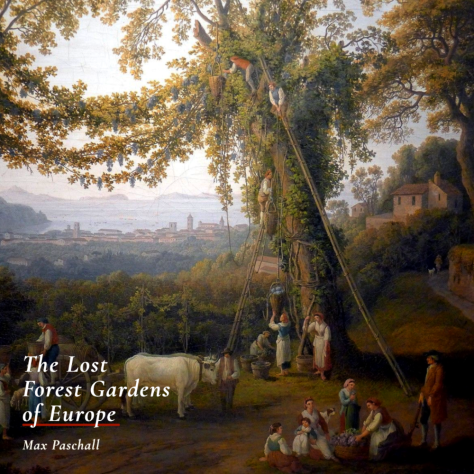The Lost Forest Gardens Of Europe: Reclaiming Ancestral Food Cultivation w/ Max Paschall
By Max Paschall

In this episode, I speak with writer, arborist, and professional horticulturist Max Paschall. We discuss his essay ‘The Lost Forest Gardens of Europe,’ published at the Shelterwood Forest Farm website.
In addressing the ever-increasing, ongoing impacts anthropogenic climate change is having on food production and land management, for those of us that descend from European colonizers in North America, what can we learn from the past? What relationship did our ancestors have with the lands they were indigenous to, and how did they adapt to rapid climatological and ecological shifts throughout the millennia? In Max’s fascinating and illuminating essay ‘The Lost Forest Gardens of Europe,’ the answers to these questions come more into focus.
Whereas modern industrial agriculture is descended from a distinctly imperialist Roman plantation system based on slave labor, systems like coltura promiscua [mixed cultivation] are the direct descendants of the indigenous forest gardens of pre-agricultural Europe. Since the Neolithic Revolution, an assortment of farming systems in Europe that relied heavily on monocultures and a handful of finicky staple crops often ended abruptly and violently. The diverse forest gardens of peasants, however, have quietly shrugged off ten thousand years of turbulent changes. This article is a look at the little-known history of these systems and their innovative strategies for survival.
As we search for ways to remake the way we garden, farm, and live in a time of climate change, extreme inequality, and political disarray, looking back at the innovations of Europe’s hidden agroecological past can provide invaluable lessons on how we might collectively move forward. (https://bit.ly/2HRkScu)
Max Paschall is an ISA certified arborist and professional horticulturist coming from four generations of nurserymen and women. He is the founder of Shelterwood Forest Farm, a small wooded farm located in the Appalachian foothills of eastern Pennsylvania.



